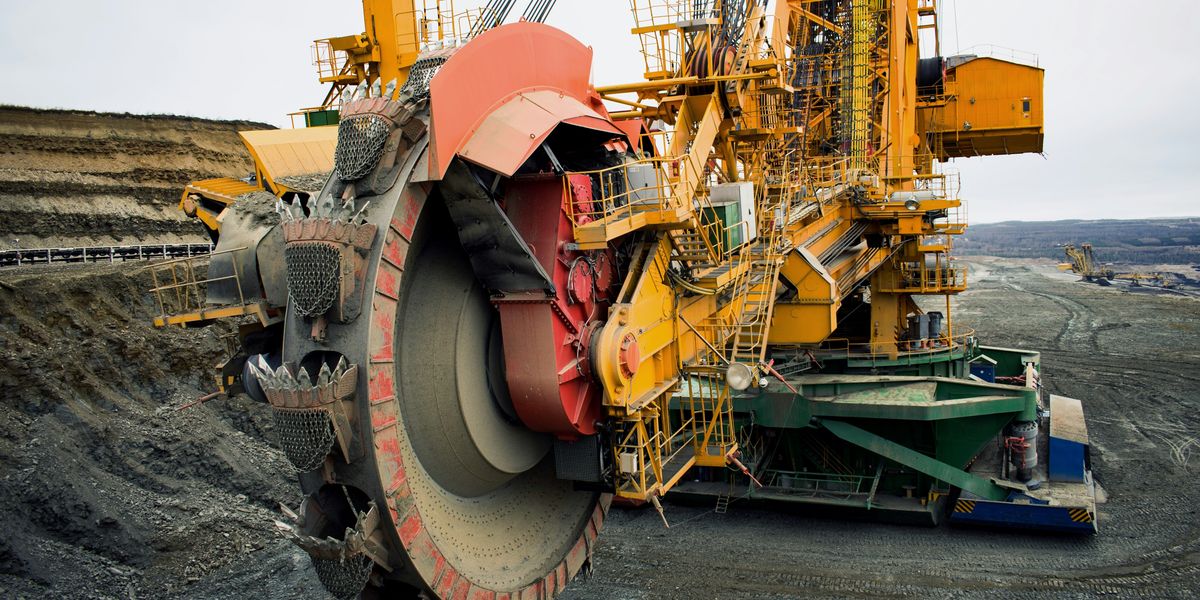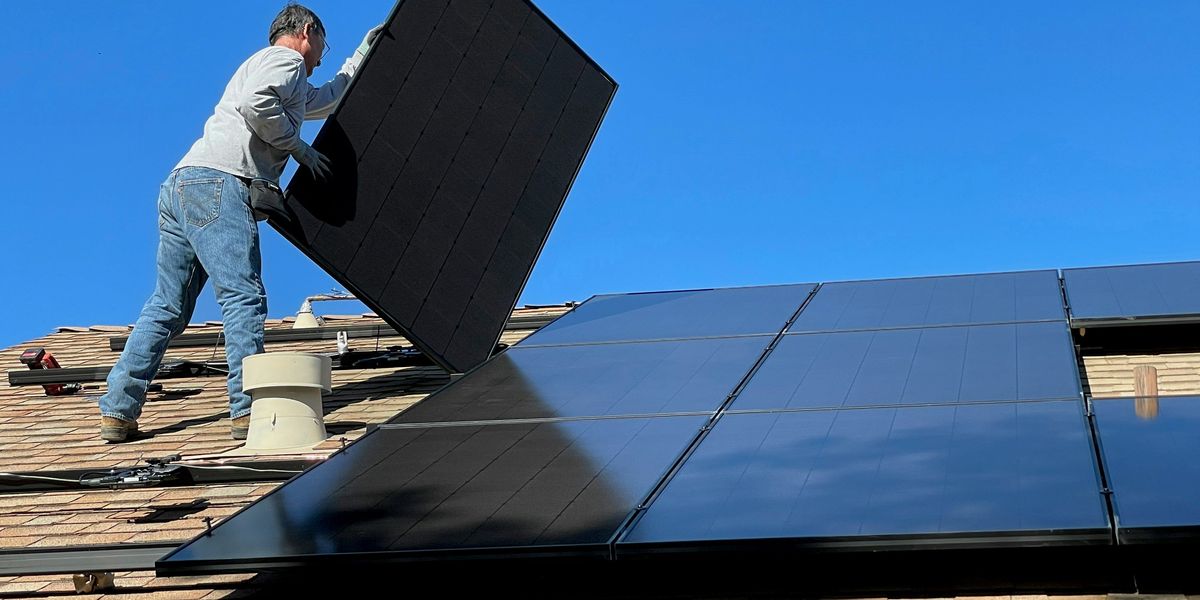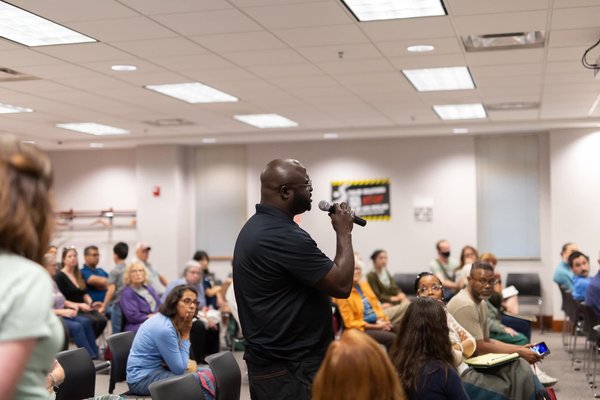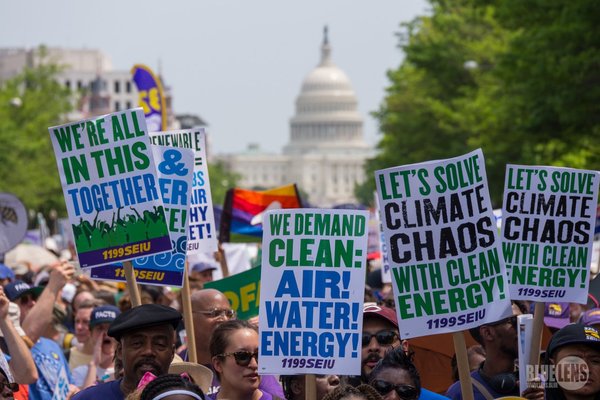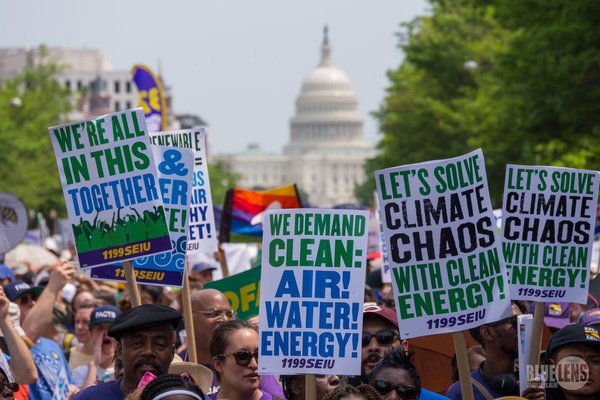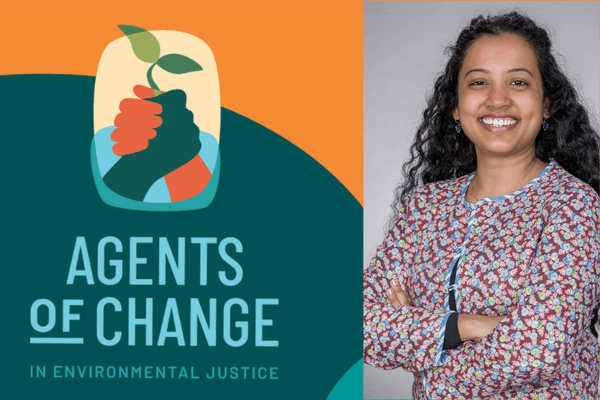
Critical condition: Health experts sound the climate alarm.
Experts paint a dire portrait of climate change’s public health impacts, but leave a little room for hope.
ATLANTA—In a gathering impacted by presidential politics, an all-star cast of public health experts largely stuck to their own bleak script: Climate change is poised to unleash an unprecedented, global public health crisis.
Not even former Vice President Al Gore, who served as the day's emcee, waded into the political swamp. He presented a half-hour, health-themed version of his much-lauded slide show.
While Gore summarized the gobsmacking array of climate impacts—heat stress, water supplies, food security, mental health, respiratory and infectious diseases, allergens, and weather disasters—he left room at the end for some more convenient truths: The world, he said, is more than able to shift to a clean energy economy, reduce CO2 emissions, and blunt the worst impacts of climate change.
Harvard internist Ashish Jha discussed the climate-related spread of pathogens, and provided one of the conference’s few direct political jabs: “Walls,” he said, “will not keep these pathogens out.”
Activist and philanthropist Laura Turner Seydel gave an impassioned pitch to participate in the April 22 Scientists’ March in Washington, and to resist the anticipated science and environmental rollbacks of the Trump Administration.
(Editor's note: The Turner Foundation supports both this website and this conference.)
But much of the day focused on overwhelmingly bad news for the world. Harvard’s Sam Myers presented potential impacts on the global food supply that go beyond the links between extreme weather and crop failure. Research shows that increased CO2 actually decreases nutrients in certain food crops, he said.
Rising temperatures, he added, encourage some forms of plant blight, and could also make the backbreaking outdoor work of food production impossible in regions like northern Africa.
Psychologist Lise Van Susteren introduced examples which she said illustrate climate change’s impacts not on the body, but on the mind. “Climate anxiety” and its sharper cousin, “climate trauma,” contribute to depression, substance abuse, violence, and more, she said.
“Destructive impacts from climate change,” she said, “will someday be treated as if they were child abuse.”
Sir Andy Haines of the London School of Hygiene and Tropical Medicine tried gamely to provide an antidote to the barrage of negative news. ”Motivating people through fear, is often difficult, and can lead to cynicism,” he said. Instead, promoting the health benefits of a low-carbon economy can be a winning strategy.
"Destructive impacts from climate change will someday be treated as if they were child abuse."-Lise Van Susteren
The cost savings from those benefits will more than offset any financial hit occasioned by moving away from fossil fuels. Haines added the semi-obvious: Eschewing the car for a bike or a hike cuts emissions and increases health simultaneously.
Electric cars and bicycles, he said, cut both emissions and noise, while improved building efficiency can both reduce heating and cooling and indoor air pollution. Conversion from a heavily meat-reliant diet would provide twin benefits to health and climate.
Other panelists and speakers discussed the health impacts of adapting to a changing climate; the unique challenges of climate-related health issues in poor and minority communities; and the Centers for Disease Control and Prevention’s assistance to state and local governments on climate issues.
Healthcare advocate Gary Cohen tossed out a stat that was clearly intended to drive home the public health community’s role in climate issues: “Our addiction to fossil fuels…. is killing more people than AIDS, malaria and TB combined.”
Cohen added “In the 21st Century we can no longer support healthy people on a sick planet.”
The conference closed with a panel on climate communication. It was mostly a primer for solid climate communication by health professionals, but one of the panelists was hardly a “usual suspect” in all things climate. Jerry Taylor was a CATO Institute Vice President often booked onto TV talk shows to call climate science into question. For the past few years, he’s burned former political bridges by acknowledging climate change and advocating a carbon tax. “After 20 years of wrestling with the climate bear, I lost,” he said.
Taylor’s prescription for persuading conservatives and Republicans on climate change focused on talking about risk management, and avoiding discussions of the social cost of carbon or the massive restructure of the world’s economy.
To CDC, or not to CDC
The meeting was originally announced in mid-2016 by the Atlanta-based Centers for Disease Control and Prevention. After Donald Trump’s election, the CDC abruptly pulled the plug on the three-day event, citing “uncertainty” in the agency’s direction under Trump.
Several non-government groups, universities and philanthropies teamed up to salvage a one-day conference on short notice. The Carter Center’s Chapel held a capacity crowd of 340, including 40 accredited journalists.
The short notice perhaps explains the adorably generic name for the meeting: “Climate & Health Meeting.” In a surprise appearance, host and former President Jimmy Carter gave the CDC a pass for cancelling its event.
“The CDC has to be a little more careful politically,” he said. “The Carter Center doesn’t.”
Politics loomed large in one other portion of the gathering: A physician scheduled to present in Atlanta ended up doing so remotely. According to American Public Health Association President Georges Benjamin, Dr. Nick Watts had recently visited hospitals in Iran, and was denied a visa to enter the U.S.



